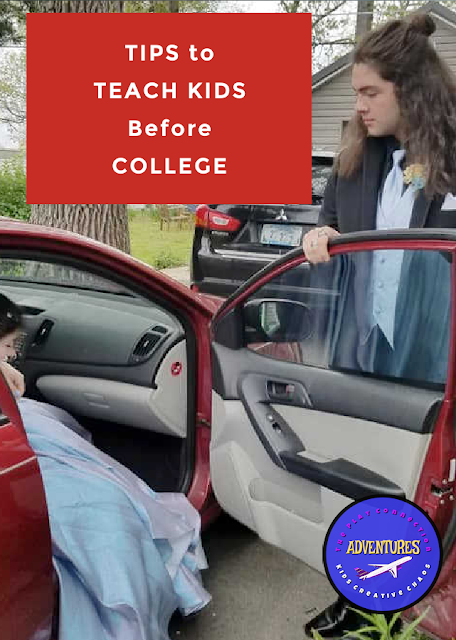Hectic schedules are inevitable for a college student. But studying hard doesn’t mean you forget to eat. Remember, your brain needs fuel. It is extremely easy and tempting to grab a cup of ramen or a pizza with a sprite and call it a day. However, this is neither feasible nor healthy. Great news! It isn’t an impossible task to incorporate healthy meals into your busy routine.

Basic Nutrition
The basic food groups are something everyone is aware of. This will help you determine the amount and types of food you should consume to stay healthy. Eating healthy can be challenging, however, the consequences of unhealthy eating may be slow to occur but devastating in the long run.
With issues like fatigue, depression, menstrual irregularities, gastrointestinal issues, and low immunity, “you truly become what you eat”.
Most people are familiar with the classical food pyramid, however, in 2014 this was replaced with the plate. This showcased not only the recommended nutritive foods you should consume but also gives an idea about portion size.
However, keep in mind that the portion sizes vary greatly depending on your age, gender, and physical activity. For example, a college athlete will need far more calories compared to a chemistry undergrad spending their days in the lab.
Recommended Daily Intake
Typically, a college student needs about 4-8 servings (3-5 for females) of carbs of which at least half should be whole grains. Protein intake of 45-55g per day is enough whereas curbing your dairy cravings to no more than three cups a day.
Vitamin and fiber-rich fruits and veggies, thankfully have no strict restrictions, but the recommended minimum for 2-3 cups of veggies and 2 cups of fruits daily. Always keep various types of brightly colored fruits and veggies in your routine, because all of these are packed with all the correct vitamins. Some of these include but are not limited to broccoli, carrots, spinach, oranges, kiwi, grapes, blueberries, strawberries, etc. (via HealthCanal.)
How Unhealthy Food choices Affects Us
College and caffeine are a tale as old as time. Deadlines, gruesome assignments, early morning lectures, or warm nights surrounded by friends, caffeine is a constant companion. However, constant caffeine intake is linked to insomnia, anxiety, poor concentration, and performance.
Instead, try to sleep at least 7 hours (get off your social media past midnight!). Limit those caffeine cups to 1-2 per day and try to keep those all-nighters, only occasionally in emergencies and spaced apart.
Even though this is akin to beating a dead horse, fats are deadly when eaten excessively, it is a major culprit for cardiac diseases and stroke. Nonetheless, cheat days are allowed and moderate intakes are encouraged.
Whole grains are the better choice when it comes to carbs. Excess sugar is converted to fat leading to weight gain and is a major risk factor for type 2 diabetes mellitus. Low-fiber refined sugar doesn’t trigger insulin which stores away the excess sugar, the pancreas is unable to deal with the sugar rush, hence you crave sugars only hours after that delicious pasta.
Salt and preservatives, rich processed meats, canned food, and packed meals are at risk of high blood pressure, heart disease, and some cancers.
Dining Hall Tips to
Planning is the best way to avoid giving in to your sugary urges. Browse through the dining halls menu online and decide your breakfast before going to bed, so you don’t buy meals with your craving eyes. Some college dining halls provide calorie counts for their meals.
Keep an apple or some granola bars to your snack on your midday cravings and avoid the vending machine. Many healthy lifestyle snack options, like nut butter, crunchy seaweed snacks, and protein bars.
Try to keep a protein source on your plate as well as a fresh item. Salads are a great option and mind you, there is way more to salads than just lettuce. Choose grilled instead of fried chicken. Replenish your plate with veggies and choose brown rice over white rice.
Desserts can be fruit instead of sweetened yogurt. Replace your sodas with freshly pressed juices and water. Try different items on the menu regularly instead of sticking to a single item. Avoid lingering in the dining hall for long, don’t use the hall for group studying and projects. This will distract you and tempt you to eat more than you need.
There are many ways to make small changes to your diet which will make a world of difference only if you put your mind to it.
Dorm Room Cooking
Many dorms may not have adequate facilities for cooking meals regularly. In such cases, stock up your pantry with items like fruits, dried fruits, bagged salad greens, can tuna, whole grains (oats), yogurt, and popcorn.
However, there are many ways to whip up easy meals for college students on the budget and drowning in deadlines. From baked salmon to chicken avocado, many easy weeknight dinners are great and take little time to make.
Microwave Meal
Microwave meals can also be healthy and quick to make. Scrambled eggs, lean cuisine, potatoes, can soup, single-serve quinoa, or brown rice cups can make simple, quick, and delicious meals. Top with seasoning and wash down with some freshly blended smoothies to keep you full for the day.
Eating Well on a Budget
Money is always tight for college students. The stress of college work can be so overwhelming that budgeting meals while keeping them healthy is the last thing on your mind. To help you here are some tricks to save your money and your health:
Make a shopping list for each meal during weekends and only stick to that.
Avoid buying expensive snacks like chocolates, chips, and packaged frozen meals too often.
Shop for fresh produce and meats on sale. Not expired.
Buy one or two expensive items like dressings and spices one at a time during each shopping trip to stock up.
Always keep cheese and salads, greens on hand to whip up a quick salad with any leftover meat or fish.
Stock your pantry with items that have long shelf lives to keep eating healthy.
Establish an Eating Habit
Two to three solid meals are a must, daily. Eat while you are slightly hungry and at specified times if possible with small intervals between snacks and meals.
You are likely to eat more while starving, but frequent small meals will keep you full and functioning. Even if you can’t sit to eat because of classes or sleep, keep a snack to munch on the go.
Portion Control
Easier said than done. We all know that all college students are perpetually hungry. However, try to eat slowly and wait 10-15 minutes before the next round. Drink plenty of water and eat on a small plate these are just some tips that can help you understand and implement portion control into a healthy diet plan.
Furthermore, keep in mind that you can always have seconds later, so don’t pile your plate with everything in the dining hall or give in to that discount buffet.
A balanced meal of carbs, lean proteins, and heart-healthy fats with a rainbow of fruits and veggies is ideal. Try to incorporate this as much as you can, at least daily if not every meal.
Smart Foods for Quick Nutrition
Adding a healthy item or two to your meal will not only improve the nutritive quality of your meal but also elevate its taste. Here are some smart foods to add to your meals or to snack on throughout the day.
Beans
Blueberries
Dark Chocolate
Dark green vegetables
Oats
Salmon
Walnuts
These tasty items also happen to be brain foods. So fuel your brain and get your gears working for that organic chemistry assignment.
Eat breakfast, even if you wake up at lunchtime
Running late for classes or oversleeping, we have all been there. Nevertheless, skipping breakfast for that isn’t the answer. Numerous studies have reiterated the importance of a healthy breakfast on classroom performance.
On-the-go breakfasts like single-serve oatmeals, greek yogurt, hummus, hard-boiled eggs, nuts, and fruits are highly packed with nutrients.
Make sure you take exercise 101
Yes, we have all heard this advice and we hate it. But this advice is repeatedly drilled into people’s minds for a reason: it works. Incorporate exercise into your routine, like your classes you shouldn’t miss.
Set up a workout corner in your room, walk to class, join a gym or join the college sports team or local fitness centers, the options are endless once you put your mind into it. Improved mood, sleep, and good memory will help you gain better results.
Limit alcohol intake
The one beverage with absolutely no nutritional benefits and is detrimental to your health is alcohol. The occasional light drink during parties is acceptable but indulgence is a recipe for disaster.
Loss weight sensibly
Starvation is never the answer to losing weight. You run the risk of developing eating disorders with fad diets and diet pills. Studies found no link between certain food combinations with weight loss. Instead balanced meals with exercise are the surest way to maintain a healthy weight. Remember health is not measured by the models and celebrities on social media and magazines.
Enjoy your pizza with half the cheese, baked potato, a regular size roast beef sandwich, or green salad. Forego the tasty trio: French fries, fried chicken, and fish sandwiches which are loaded with fat. This way you can enjoy fried food guilt-free.
Conclusion
The best advice for healthy eating is to take things easy. Keep your bones healthy with calcium-rich foods, stay hydrated and please try to sleep. All of these steps work in tandem to keep your mind and body healthy. Enjoy weekends thoroughly.
Gauge how your body reacts to different foods and adjust accordingly. Armed with the correct knowledge, tackle your next semester with a healthy body, sharp mind, and less stress. Remember, you can consistently score high as long as you are healthy.
Recommended:
CLEP Exam List for Homeschoolers
Preparing Teens for College
College Care Package Ideas


















